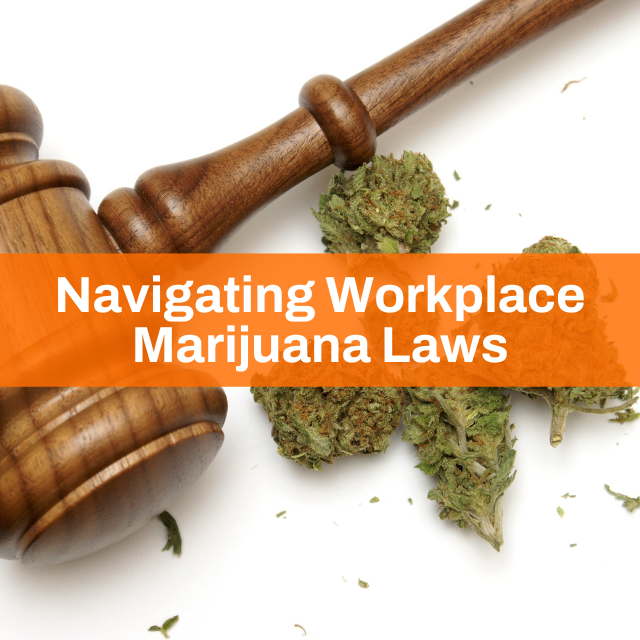The Rise of Oral Fluid Testing: Navigating Workplace Marijuana Laws in California, Washington, and Beyond

By Yvette Farnsworth Baker, Esq.
Current Consulting Group
The last decade has witnessed a whirlwind of change in marijuana legalization and drug testing laws. The latest legal shifts in California and Washington are just the newest gusts. The winds of change have been continually blowing across the United States, particularly when it comes to marijuana legalization and its impact on workplace drug testing. In this article, we’ll delve into the recent legal shifts in California and Washington, explore the rising trend of oral fluid testing, and examine other states actively endorsing oral fluid testing.
How Marijuana Laws Reshaped Workplace Policy
From its initial appearance as a niche medical treatment in 1996, marijuana legislation has undergone a dramatic transformation. What started as tightly controlled access for specific medical conditions has blossomed into a widespread phenomenon, with medical marijuana legalized in 39 states, and recreational use permitted in 21 states (as of February 2024). This seismic shift has sent shockwaves through the world of employment law, reshaping how workplaces approach drug testing and employee privacy.
States that were early adopters of marijuana legalization consistently granted employers the right to discipline or terminate employees based on positive marijuana tests, even for those with valid medical prescriptions. That has drastically changed in recent years. Today, numerous states explicitly protect employees from adverse employment actions solely based on positive marijuana tests without evidence of on-the-job impairment or workplace use. Some states still retain an employer’s right to test and discipline for all marijuana positives, but laws are undeniably trending in the other direction.
The journey is not without its complexities. Questions about safe work environments, how to prove impairment, and balancing employee privacy with workplace responsibility remain points of ongoing debate. Navigating this rapidly evolving terrain requires employers to stay educated, consult professionals in the industry, and adopt drug testing methods that align with their workplace goals and state law.
California and Washington: A Tale of Two Metabolite Bans
Both California and Washington legalized recreational marijuana many years ago, but their approaches to workplace testing for recreational marijuana have just made a huge shift. Both California and Washington have laws that took effect January 2024 that are unique in the workplace testing world.
California enacted a law in 2022 prohibiting employers from taking adverse action against employees based on drug tests that detect non-psychoactive cannabis metabolites. This means that a positive drug test result based upon marijuana metabolites cannot, on its own, give cause for workplace discipline. However, drug tests that detect the parent THC drug, rather than the metabolite, are not subject to the same restrictions.
Washington followed suit in 2023 with a similar law, but one that only applies to pre-employment testing.In Washington, employers cannot refuse to hire an applicant based upon a drug test result that detects only cannabis metabolites. Employees are not protected by the new Washington law, as it only applies to applicants.
Both laws present a crucial difference: they focus on metabolites, not the parent drug of marijuana. This distinction opens the door for oral fluid testing. Urine testing exclusively detects marijuana metabolites and not the parent drug of active THC. Oral fluid testing, on the other hand, primarily detects the active THC parent drug and provides a clearer picture of recent use and potential impairment. This means that these California and Washington laws restrict employers from using urine tests to make employment decisions based solely on the presence of cannabis metabolites. However, these same laws allow the use of oral fluid tests that detect the active form of THC.
Embracing the Streamlined Alternative of Oral Fluid Testing
With traditional urine tests struggling with recent use detection, oral fluid testing emerges as a compelling alternative. It is no coincidence that the new legislation in California and Washington implicitly endorse oral fluid testing. Its advantages are abundant:
- Rapid results: Get results in minutes, enabling swift, informed decisions.
- Non-invasive and user-friendly: Simple oral fluid collection provides a more comfortable experience for donors and collectors.
- Cost-effective: More efficient with no special collection facilities required, as well as preventing shy bladder, diluted, or out-of-temperature specimen issues.
- Focus on recent use: Detects the active THC, offering a direct link to potential on-the-job issues. Eliminates positive results from historic marijuana use.
A Legislative Shift Towards Oral Fluid Across the Nation
California and Washington aren’t alone in endorsing oral fluid testing. States like Alaska, Minnesota, New Mexico, New York, and Utah are currently considering bills that promote oral fluid testing in various contexts, including:
- DUI enforcement: Providing immediate on-site drug testing capabilities for impaired drivers.
- Voluntary and mandatory drug testing programs: Expanding restrictive state drug testing programs to permit oral fluid samples.
And the most marked endorsement of oral fluid testing came in 2023 when the federal government finally approved oral fluid testing for employers regulated by the Department of Transportation. This long-awaited endorsement, following years of research and debate, validated what insiders already knew: oral fluid testing is a powerful tool.
Conclusion: A New Era of Testing Demands Informed Choices
With the evolving legal landscape and the growing adoption of oral fluid testing, employers need to stay informed and adapt their drug testing policies accordingly. While workplace drug testing offers distinct advantages, it’s not a one-size-fits-all solution. Consulting with legal counsel or workplace drug testing professionals and carefully considering your specific needs is crucial in navigating this complex terrain.


